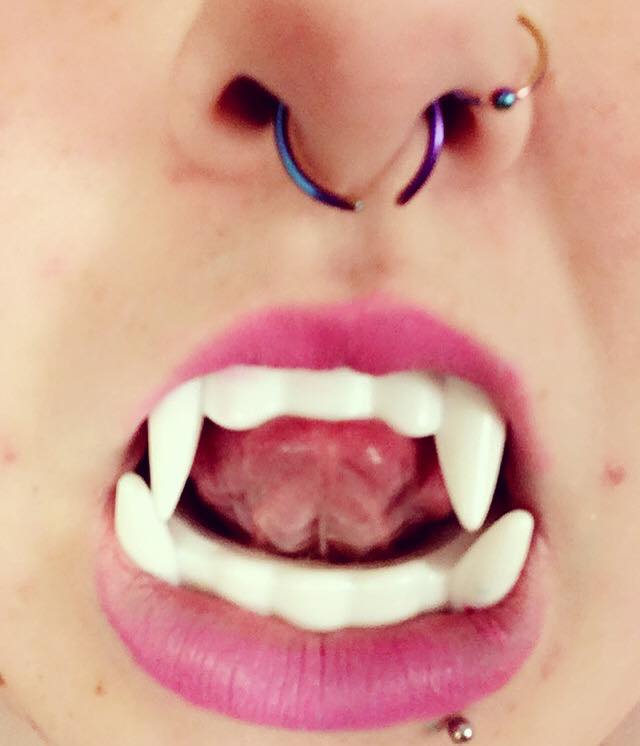Very Special ED-Pisodes is a “series” where I discuss single episodes of tv shows that center around eating disorders, dieting, and body image. These will most commonly be sitcoms and animated shows, with episodes that fall into the “Very Special Episode” category, if this wasn’t already obvious.
The purpose of this blog from the beginning was to explore how eating disorders are portrayed in film, television, and literature. But the Funny or Die video series, “A Very Special Episode” is what drew me to this particular category.
If you are unfamiliar, “A Very Special Episode” is a web series that riffs episodes of popular sitcoms that dealt with serious social issues. The humor is dark, and criticizes how shows fail to address these topics in responsible or nuanced way. One of their recent videos centered around an episode of Sabrina the Teenage Witch that likened a “pancake addiction” to actual substance abuse issues.
Full House
Full House was a popular sitcom in the 80’s and 90’s. It’s about three adult men raising three young girls together in the same house in San Francisco- yet none of them are gay. (Missed opportunity!) Danny Tanner, a widower, calls upon his brother-in-law (Jessie) and childhood best friend (Joey) to help him raise his three blonde daughters, DJ, Stephanie, and Michelle. Full House also spawned a Netflix reboot, “Fuller House”, in which DJ is widowed and calls upon her friends and family to help raise her sons.

I consume large amounts of nostalgic content. But Full House doesn’t have that charm for me. It premiered before I was born. I was a toddler when it went off the air. I have some memories of watching reruns on Nick @ Night, but the show doesn’t hold up now. It’s pure saccharine. I cannot stand the cheese! The insincerity and superficiality of “Full House” is why I struggle to take their “very special episodes” seriously. Throughout “Very Special Ed-Pisodes”, I will try to acknowledge my own biases. Shows that I have true nostalgia for are going to fare better than shows like Full House. I cannot stand Full House. But if Full House was your entire childhood, their very special episodes may have had a profound impact on you.
Shape Up (Season 4, Episode 8)
In this Very Special ED-pisode, DJ, the eldest of the Tanner girls, is invited to her best friend’s pool party. She decides she must lose weight to look good in a swimsuit, and decides to stop eating.
If you have not watched the Full House episode, the above video gives a succinct five minute summary.
The”Funny or Die” episode pokes fun at the absurdity of “Shape Up”, without joking too much at the expensive of people with life threatening eating disorders. It hit all the right notes for me. But if you have been affected by an eating disorder and find the jokes to be offensive, I understand.
Also consider this synopsis from the Full House Reviewed blog. They raise excellent points like:
- “…DJ expresses frustration towards her lack of weight loss. Jesse comes in and tells her that if she wants to lose weight she might want to focus on exercise rather than dieting, and recommends that she work out at Michelle’s gym. Wait, what? Since when does Michelle go to the gym? Why is that a thing that he can just mention that’s not supposed to be perplexing to the audience? “Michelle’s gym”? What the fuck? The fact that Michelle apparently goes to the gym often enough that it’s a familiar reference at the full house might actually shed some light on why DJ is having all these fucked up issues about her body.”
- “DJ tells Comet, “You’re lucky…dogs don’t have to wear bathing suits” and then sad music plays while the camera closes in on DJ and then cuts between her and Stephanie’s distraught expressions. Have you ever heard of a worse prompt for a sad moment than, “dogs don’t have to wear bathing suits”? How come this show’s only ever actually funny when it’s failing to be emotionally effective?”
- “Danny tells DJ that people come in all shapes and sizes, and that he himself struggled with body image issues growing up because he was so tall and skinny. Oh yeah, Danny, being a tall thin white man is a real hill to climb! Poor Danny!”
Fun Fact!
Apparently, there was a novelization of this episode included in a book titled, “Way to Go Chipmunk Cheeks”.

My Thoughts
“Shape Up” has been fairly criticized by numerous websites and publications as being a poor representation of eating disorders. (7 TV SHOWS THAT GOT MENTAL HEALTH ISSUES REALLY, REALLY WRONG , A Definitive Ranking of ‘Full House’s Very Special Episodes, Eating Disorders on TV: The Good, the Bad, and the Okay)
I am sure the writers knew they couldn’t handle a true eating disorder plot in their 30 minute format, hence they chose to talk about the dangers of crash dieting. But the adults in DJ’s life either ignore or enable her behaviors, up until the point they realize she isn’t eating. This episode first aired in 1990. Eating disorders were still associated with Karen Carpenter. Diagnostic criteria was different than today. While the fat acceptance movement started in the 1960s, few people were talking about the concept of health at every size. I wasn’t even born yet! So maybe I am making all of this up. I do know that 30 years later, diet culture remains pervasive.
What “Shape Up” gets right, yet sadly fails to address, is how diet and weight loss have become so normalized, average people have trouble identifying disordered eating. Many behaviors diagnosed in people with eating disorders are dismissed as the simple pursuit of health and wellness. In “Full House”, Dj is by no means “overweight”. But neither her best friend nor her family is concerned that she wants to lose weight. Rather than talking to her about her body image, they try to give her advice about weight loss. Her uncle Jesse suggests going to the gym. His fiancee, Becky, tells her to keep junk food out of the house. Neither one of them explains the risks associated with dropping weight quickly. Nobody has a problem with her taping thin models on the refrigerator. The problem is only addressed when it reaches an extreme. When Stephanie tells the adults DJ stopped eating, suddenly they change their tune. Joey and Jesse begin talking about the dangers of Anorexia and Bulimia. Danny tells her she is beautiful, even if she doesn’t look like models in her magazines. This is all well and good. But this conversation should have happened the moment she started taping thinspiration to the refrigerator.
Eating disorders are secretive. It is difficult to catch someone in the act of binging or purging. People who restrict are often able to mislead people about the true nature of their eating habits. If a person doesn’t appear thin or sickly, their eating disorder may go unnoticed for years. Many people with eating disorders are not thin, but still experience adverse health effects. And those who are thin, or showing other physical signs of illness, find effective ways to hide them from others. There are also countless people who struggle with disordered eating, rather than full-blown clinical eating disorders. Those who struggle for years with body image, yo-yo diet ing and weight cycle, many not recognize their behaviors are harmful. Even people without “clinically significant” eating disorders need help from therapists, dietitians, and recovery coaches to overcome chronic dieting.
I understand “Full House” is largely a product of it’s time. But I wish the episode had taken more care to explain how to recognize if someone you care about has a problematic relationship with food, and how to help them.
Although Mary-Kate and Ashley Olsen (Michelle) live very private lives, Mary-Kate’s history of Anorexia is well known. When I looked at other reviews and summaries of this episode, I avoided those that mocked Mary-Kate’s real life illness. It’s low hanging fruit that even Funny or Die knew to avoid.
I also realize Candace Cameron Bure (DJ) herself struggled with Bulimia, several years after filming Full House. She wrote about it in her book, Motivation for Physical and Spiritual Fitness. I strongly suspect the book also has a lot of problematic, contradictory advice about weight loss and diet in it. (I never read it. If I’m wrong, feel free to call me out in the comment section.) She stated that her eating disorder “had nothing to do with body image or trying to lose weight, but had everything to do with adjustment and fear.”


















One thought on “Very Special ED-Pisodes: Full House (1990)”